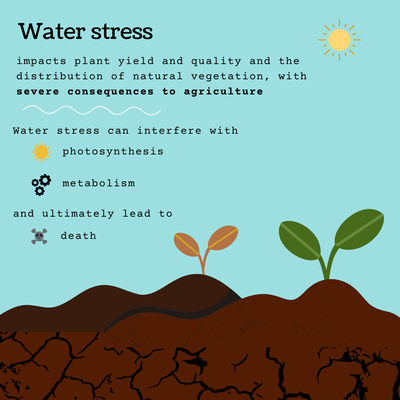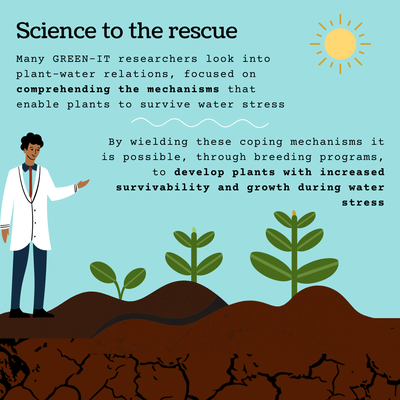The fight-or-dry-out response
January and February 2022 arrived with close to no rainfall in mainland Portugal. A rather unusual circumstance for wintertime, this inevitably translated into a meteorological drought – an event caused by prolonged times with less than average precipitation, for the region in question. These prolonged dry periods can have dire consequences on crops and river flow, and cause socioeconomic and health issues.
The Mediterranean region is already particularly susceptible to these events, which are predicted to become more frequent due to climate change. Furthermore, agriculture is one of the most vulnerable sectors to drought. With the increased demand for stable production and food security, this all puts Mediterranean agriculture not only under immense pressure but also at a huge risk.
As such, it is extremely important to have a clear picture of the implications of long-term changes in precipitation and drought patterns.
Water stress, be it permanent or temporary, negatively impacts many aspects of the physiology of plants. It can result in the suspension of photosynthesis, disturbance of metabolism, and ultimately death. Consequently, it also influences plant yield and quality as well as the distribution of natural vegetation.
To withstand drought, plants use different coping mechanisms that can go from the production of stress hormones to changes in root and shoot morphology. These mechanisms vary among plant species, and they are of immense economic importance. It is therefore extremely important to fully comprehend how plants are able to reduce their resource use and adjust their growth to cope with water limitations.
At the GREEN-IT Research Unit, the current pressure on the agricultural sector, and the threat of water scarcity are major concerns. Thus, there are many GREEN-IT researchers who are focused on comprehending the complex metabolic and genetic mechanisms that enable plants to survive under circumstances such as water stress.
Focusing mainly on relevant crops such as maize, rice, grass pea, and others, GREEN-IT researchers look to understand plant-water relations and the physiology and molecular biology that lays underneath stress resistance. That is the foundation to wielding the coping mechanisms in order to improve plant productivity and environmental quality. Through breeding programs, it is then possible to develop plants with increased survivability and growth during water stress.
The beginning of 2022 was a harsh reminder of the consequences of climate change. As the pressure of water scarcity and food security becomes more stringent, it is ever more crucial to take action and use scientific developments for humanity’s benefit.
World Water Day is held on March 22nd to celebrate this finite resource and advocate for its sustainable management.




